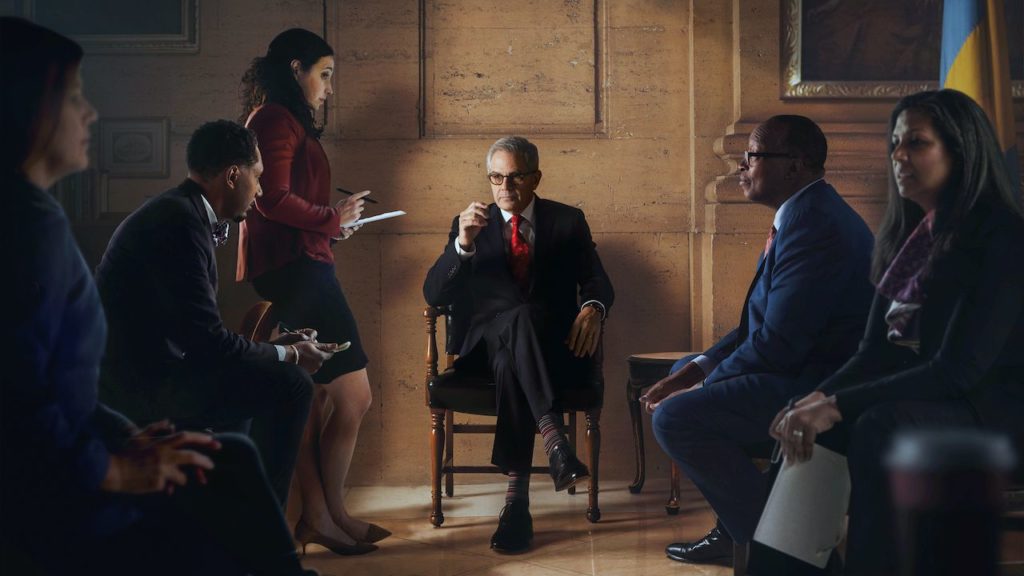
One of the best political series in years — fiction or nonfiction— the eight-hour documentary “Philly D.A.” (PBS, 9 p.m.) is also among the most timely. Telling the story of Philadelphia progressive district attorney Larry Krasner’s unexpected election in 2017 means taking a hard look at the practical applications of judicial reform, and budging intransigent police unions. The first two hours of the remarkable work by Ted Passon, Yoni Brook and Nicole Salazar start tonight.
Shifting time settings can be a lazy way to shake up contemporary TV narratives, but it’s rarely done as sharply as in the new teen series “Cruel Summer” (Freeform, 9 p.m.) which jumps across three years and back again to follow a cheerily nerdy 15-year-old wishes she were more popular, to a glamorous 16-year-old who has reached that goal, to a near goth 17-year-old immersed in a legal case having to do with the disappearance of the popular girl who she seems to have replaced. It works because of the writing of creator Bert V. Royal, who has turned out the juiciest series about teens and their parents since “Gossip Girl,” but also because of the performance of Chiara Aurelia who embodies those three very different ages. It’s not just about her, though. In tonight’s second episode, the point of view shifts to Olvia Holt’s more complex portrayal of the popular girl. That it’s set in the 90s probably has more to do with eliminating phones and texts from the storytelling than their music budget (which can apparently only afford one Cranberries album).
Can three good series start in one day? Well, “Cinema Toast” (Showtime, midnight) technically premieres on Wednesday. Produced by the Duplass brothers and created by Jeff Baena, it repurposes old Hollywood films in the public domain into quirky half hour stories that use the voices of people like Alison Brie, Nick Offerman, Fred Armisen and Megan Mullally. More like Woody Allen’s “What’s Up Tiger Lily” than “Mystery Science Theater,” it’s one of the most clever things to come out of pandemic production showdowns. It begins with a 1939 Jimmy Stewart-Carole Lombard film “Made for Each Other” retooled into a profane story about Friendsgiving. A second episode at 12:30 a.m., less successful, stitches together a 1969 public service film, “The Talking Car,” with actual clips of Soviets who kept a dog’s head alive for an hour with mechanical device.